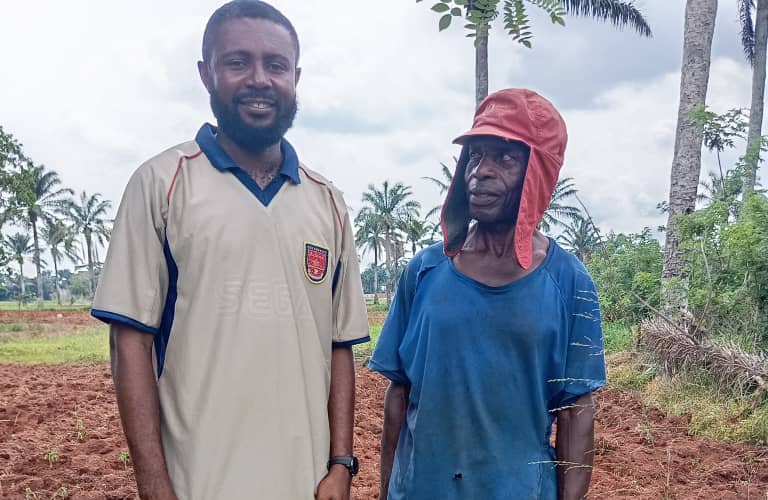The Impact of Climate Change on Rural Farmers in Enugu State:
Lesson From The Field
CLIMATE CHANGE
Okore Amah
9/3/20252 min read


Rural farmers are at the front lines of climate change, grappling with its unpredictable effects on agriculture and their socio-economic well-being. During a recent visit to a rural community in Enugu State, I had the opportunity to interact with farmers whose lives and livelihoods have been shaped by changing weather patterns. Their experiences shed light on the urgent need for adaptation strategies and support to sustain their farming activities and socio-economic resilience.
Changing Rainfall Patterns and Crop Yields:
One of the most striking challenges farmers reported was the shift in rainfall patterns. Traditionally, the rainy season in Enugu starts in March or April and lasts until October. However, farmers now face unpredictable onsets and cessations of rain, with periods of drought interspersed with intense, sometimes destructive rainfall. This unpredictability affects planting schedules and leads to lower yields of staple crops like cassava, yam, maize, and rice.
Increased Pest and Disease Pressure:
The farmers also noted an increase in pest infestations and crop diseases, which they believe are linked to the changing climate. Warmer temperatures and higher humidity create favourable conditions for pests such as armyworms and diseases like blight and rust. These outbreaks not only reduce crop yields but also increase the cost of production, as farmers must purchase more pesticides and invest more labour in crop management.
Socio-Economic Impacts:
The impact of climate change on farming extends beyond the field to the farmers' socio-economic well-being. Many farmers reported a decline in household income due to lower yields and higher costs of farm inputs. This, in turn, affects their ability to pay school fees, access healthcare, and invest in farm improvements. Some families are forced to engage in non-farm activities, such as petty trading or labour migration, to supplement their income.
Community Knowledge and Resilience:
Despite these challenges, the farmers I met demonstrated remarkable resilience and ingenuity. They shared local adaptation strategies such as adjusting planting dates, using drought-resistant crop varieties, intercropping, and diversifying income sources. They also emphasised the importance of community-based knowledge sharing, where farmers learn from one another and collaborate to find solutions.
Policy and Support Needs:
From these conversations, it became clear that while farmers are willing to adapt, they need more support. Access to accurate weather information, affordable improved seeds, extension services, and financial credit were among the key needs identified. Furthermore, investment in rural infrastructure, such as roads, irrigation, and storage facilities, would enhance farmers’ capacity to cope with climate variability.
The experiences of rural farmers in Enugu State highlight the profound and multifaceted effects of climate change on agriculture and rural livelihoods. Addressing these challenges requires a collaborative approach involving farmers, policymakers, researchers, and development partners. By building on local knowledge and providing targeted support, we can help rural farmers not just survive but thrive in the face of climate change.